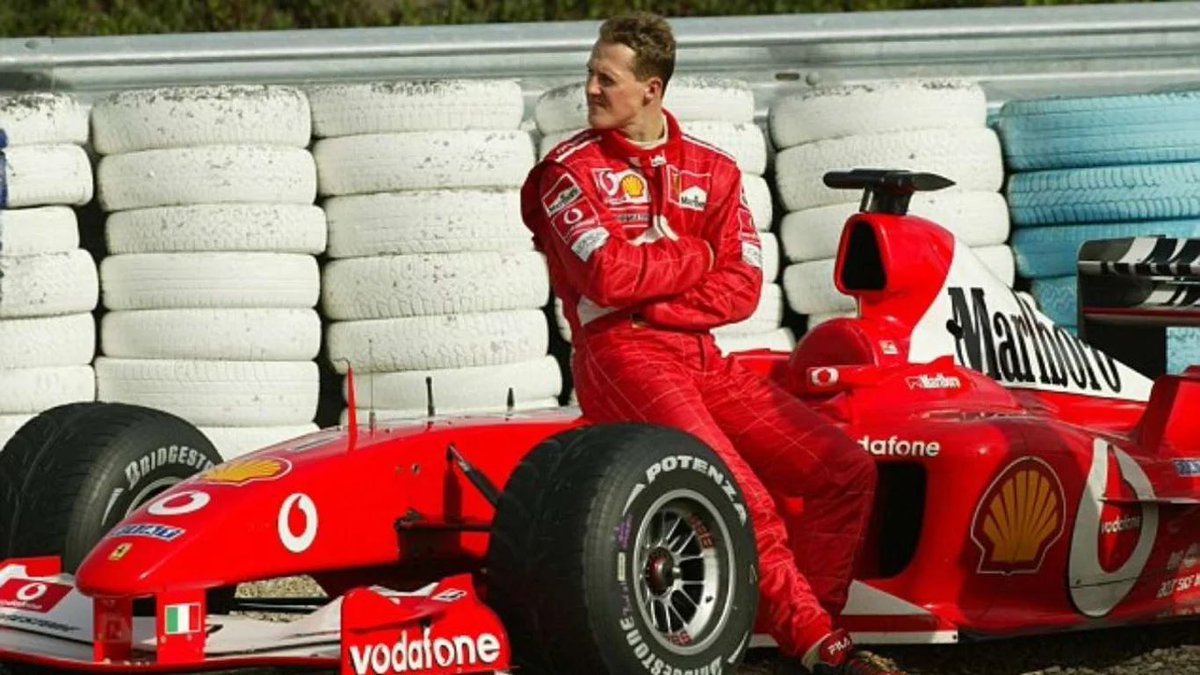
In a recent interview that has reignited debates within the motorsport community, Ralf Schumacher, brother of legendary Formula 1 driver Michael Schumacher, boldly declared his brother as the Greatest of All Time (G.O.A.T.) in the world of motorsport. This statement comes at a time when discussions about the greatest F1 drivers are more relevant than ever, particularly with the rise of contemporary stars like Lewis Hamilton and Max Verstappen. Ralf’s assertion not only highlights Michael’s monumental achievements but also raises questions about how we define greatness in a sport that has evolved dramatically over the decades.
The Legacy of Michael Schumacher
Michael Schumacher’s career is nothing short of legendary. With seven World Championships, 91 race wins, and numerous records that stood for years, he redefined what it meant to be a successful Formula 1 driver. His tenure with Ferrari from 1996 to 2006 is particularly notable; during this period, he led the team to five consecutive championships from 2000 to 2004, a feat that showcased his unparalleled skill and determination.
Schumacher was not just a driver; he was a phenomenon who transformed the sport. His relentless work ethic, combined with his ability to push the limits of both himself and his car, made him an indomitable force on the track. Ralf emphasised these qualities in his recent statements, noting that Michael’s dedication and passion for racing set him apart from his contemporaries.
“Michael didn’t just drive; he dominated,” Ralf said. “He had an extraordinary ability to extract performance from the car and adapt to any situation on track. That’s what makes him the G.O.A.T.”
The Comparisons: Schumacher vs. Hamilton
While Ralf Schumacher’s praise for his brother is heartfelt, it also invites comparisons with other greats in the sport, particularly Lewis Hamilton. Hamilton has matched Schumacher’s record of seven World Championships and surpassed him in total race wins, currently holding 100 victories as of late 2021. This raises an essential question: Can we truly compare drivers across different eras?
Supporters of Hamilton argue that his achievements in a more competitive field—marked by technological advancements and increased parity among teams—should elevate him to GOAT status. Conversely, Schumacher’s fans often point to his dominance during a time when Formula 1 was less forgiving and more dangerous.
Ralph acknowledged this debate but maintained that Michael’s unique combination of talent and tenacity makes him stand out. “It’s not just about numbers; it’s about how you achieve those numbers,” he stated. “Michael faced challenges that were different but equally tough.”
The Rise of Max Verstappen
As if the debate over Schumacher versus Hamilton wasn’t contentious enough, Max Verstappen has entered the conversation as one of F1’s brightest stars. The Dutch driver has shown remarkable skill and determination at a young age, winning multiple races and challenging for championships against seasoned competitors.
Ralf Schumacher noted that while Verstappen is undoubtedly talented, he believes there’s still a long way for him to go before being compared to legends like Michael or Lewis. “Max is incredibly gifted, but he needs time to build a legacy,” Ralph commented. “Greatness isn’t just about raw talent; it’s about consistency over many years.”
The Evolution of Formula 1
The landscape of Formula 1 has changed significantly since Michael Schumacher first entered the sport in 1991. Technological advancements have altered how cars are designed and raced, while changes in regulations have impacted team strategies and driver dynamics.
This evolution complicates direct comparisons between drivers from different eras. For example, Schumacher raced during a time when driver skill was often tested under harsher conditions—both on track and in terms of car reliability—compared to today’s more technologically advanced vehicles.
Ralf emphasised this point by stating that while modern drivers benefit from improved safety measures and technology, they also face their unique pressures within a highly commercialised environment. “Every era has its challenges,” he said. “What Michael accomplished was incredible for his time, just as what Lewis and Max are doing now is impressive for theirs.”
The Emotional Impact of Michael’s Legacy
Michael Schumacher’s tragic skiing accident in December 2013 left fans and fellow drivers alike heartbroken. Since then, updates on his condition have been scarce, leading to widespread concern for one of motorsport’s greatest icons.
Ralf expressed how deeply this situation affects not only their family but also the entire motorsport community: “Michael is not just my brother; he’s an icon for so many people around the world,” he said emotionally. “His legacy lives on through all those who watched him race.”
The emotional weight of Michael’s legacy adds another layer to discussions about greatness in F1. It serves as a reminder that behind every statistic lies a human story—one filled with triumphs, struggles, and lasting impact.
A Lasting Debate
Ralf Schumacher’s declaration that Michael Schumacher is the G.O.A.T. reignites an age-old debate within motorsport: how do we define greatness? While statistics play a significant role in this discussion, factors such as context, era-specific challenges, and personal stories also contribute to our understanding of what it means to be truly great.
As fans continue to celebrate Michael’s remarkable career while also recognising the achievements of contemporaries like Lewis Hamilton and Max Verstappen, one thing remains clear: each driver brings their unique qualities to Formula 1 history.
Ultimately, whether you agree with Ralf or not—the conversation surrounding who deserves the title of G.O.A.T will persist as long as there are races to be run and stories yet untold in this thrilling world of motorsport. For now, Michael Schumacher stands tall among legends—a testament not only to his extraordinary talent but also to the enduring spirit of competition that defines Formula 1 itself.
Leave a Reply